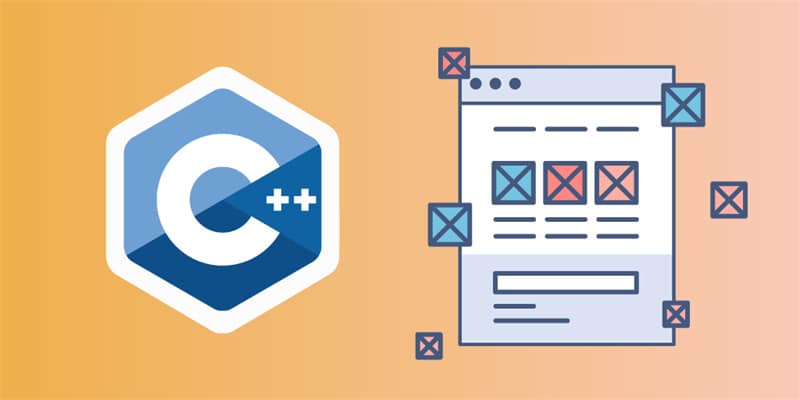
C++ is a powerful and versatile programming language that has been around for over 30 years; yet it is still widely used today.
Well, and there are many reasons for that. As a C++ developer, you have the potential to reap many benefits in your career – from high demand and competitive pay to versatile and portable code, fine-grained memory management, and object-oriented programming.
Does that sound interesting? You bet! Let’s explore these benefits in more detail and shed some light on why being a C++ developer can offer a competitive advantage.
Is There Really a High Demand for C++ Developers in 2023?
You will be surprised to know that C++ developers are in high demand across various industries, making it a rewarding career path for many. In fact, C++ is a versatile language that is well-suited for developing mobile/desktop applications or software that integrates with hardware and low-level systems. It can also be used to create internal and third-party platforms.
The demand for talented C++ developers is particularly high in industries, such as finance, gaming, and automotive, where performance and efficiency are crucial. As a result, C++ developers can expect competitive salaries with an average salary of $104,000 per year depending on one’s experience and location.
With such high demand and compensation, a career in C++ development can be a great choice for those with a passion for software engineering and a desire for challenging and rewarding work.
What Makes C++ So Popular Today?

C++ is a versatile language that offers a wide range of application possibilities. Its ability to operate in various fields and industries makes it a highly sought-after skill. Here are some of the reasons why:
- C++ can be used to develop desktop applications, mobile applications, video games, and embedded systems;
- The language provides access to hardware-specific features and offers control over system resources;
- C++ code is portable and can be easily moved from one platform or operating system to another, making it ideal for multi-platform projects;
- The language supports the use of Application Programming Interfaces (APIs), which makes it easy to develop third-party software for other platforms;
- C++ offers Polymorphism, Abstract Data Types, and Encapsulation that simplify code structure and make it easier to maintain;
- Because C++ is a statically typed language, it is faster to compile code than dynamically typed languages like Python, C#, Java, and C;
- C++ developers can take advantage of these benefits to create high-performance software solutions that are scalable and robust.
Memory Management and Performance in C++
The C++ programming language is well known for its fine-grained memory management and its ability to produce highly efficient code. C++ offers a range of memory management techniques, including stack allocation, heap allocation, and manual memory management.
This level of control allows developers to optimize the use of system resources and to create programs that run faster and more efficiently than those written in languages with automatic memory management, such as Python or Java.
Due to its low-level nature, C++ is often used in high-performance applications such as games and scientific computing. The performance benefits of C++ are particularly important in applications where speed and efficiency are critical, such as real-time systems, with even a small delay leading to serious consequences.
In addition to its fine-grained memory management, C++ offers a range of performance optimization features, such as inlining and template metaprogramming, that allow developers to create highly optimized code that takes full advantage of the system's hardware capabilities.
Object-Oriented Programming in C++

It is an object-oriented programming language and supports the OOP paradigm. The latter is based on the concept of objects, which are instances of classes, and allows developers to write more modular and maintainable code. With OOP, code can be organized into classes, which encapsulate data and behavior, and provide a clear separation of concerns. This allows developers to build complex systems by composing smaller, simpler components, which can be tested and debugged independently.
C++ is often used in large-scale software projects, where good software design is critical. With OOP, C++ developers can create highly modular code that is easier to maintain and evolve over time. In addition, C++'s support for inheritance, polymorphism, and virtual functions allows for more flexible and extensible code.
What Does That All Mean?
All in all, C++ is a valuable programming language with numerous benefits for developers. Its high demand, competitive pay, versatility, portability, memory management, performance, and object-oriented programming make it a popular choice in various industries.
As such, learning or improving skills in C++ can open up many opportunities for developers. With its fine-grained memory management, modular code design, and high performance, C++ remains a relevant and essential programming language after over 30 years.










